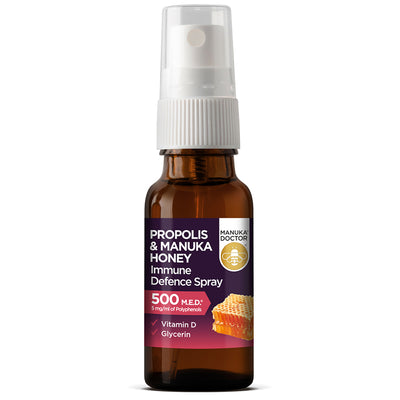Media reports have been raising concern about Strep A. You can learn more about Strep A in our helpful guide:
Q: What is strep A?
A: Strep A is a common type of bacteria, also known as Streptococcus pyogenes or Group A Streptococcus (GAS). This type of bacteria can colonise the throat, skin and anogenital tract [1] and is a leading cause of pharyngitis in children and adolescents [2]. Most strep A infections are mild and easily treated, but some are more serious.
Q: What should I look out for?
A: The infection commonly presents as a mild illness with a sore throat but it can also cause a range of skin, soft tissue and respiratory tract infections.
Common symptoms of strep A include:
- Flu-like symptoms, such as a high temperature, swollen glands or an aching body
- Sore throat (strep throat or tonsilitis)
- A rash that feels rough, like sandpaper (scarlet fever)
- Scabs and sores (impetigo)
- Pain and swelling (cellulitis)
- Severe muscle aches
- Nausea and vomiting
The current advice from the NHS is to get an urgent GP appointment or get help from NHS 111 if:
- Your child is unwell and is getting worse
- Your child is feeding or eating much less than normal
- Your child has fewer wet nappies than usual or is peeing less than usual, or shows other signs of dehydration
- Your baby is under 3 months and has a temperature of 38C, or is 3 to 6 months and has a temperature of 39C or higher
- Your child is very tired or irritable
Q: How is strep A transmitted?
A: Strep A is spread by close contact between people, through respiratory droplets and direct skin contact. It can also be transmitted environmentally, through contact with contaminated objects, such as towels or bedding or ingestion of food inoculated by a carrier.
Q: What treatment is used for strep A?
A: Most strep A infections are not serious and can be treated with antibiotics. If you or your child has a strep A infection, you should stay away from nursery, school or work for 24 hours after you start taking antibiotics. This will help stop the infection spreading to other people. Rarely, the infection can cause serious problems. This is called invasive group A strep (iGAS) infection where the bacteria are isolated from a normally sterile body site, such as the blood. Serious strep A infections need to be treated in hospital.
Q: Are there other natural remedies that can help with mild cases of strep A?
A: Over the last few years, Strep. pyogenes have shown increased resistance to certain antibiotics used for the treatment of pharyngotonsilitis in children. [3] This increased bacterial resistance to traditional antimicrobial agents has prompted the use of natural products with antimicrobial properties such as propolis [4]. Propolis is now often referred to as a ‘natural antibiotic for sore throats’ for this reason.
Q: What is propolis?
A: Propolis is a resin-like material made by bees from the buds of poplar and cone-bearing trees. Bees use propolis to build and maintain the safety of their hives.
There have been a great many scientific studies carried out to find out whether propolis is a good treatment for illnesses of the human respiratory system, such as sore throat, and other infections. There is good scientific evidence to suggest efficacy of propolis in humans for sore throat (pharyngitis) and related conditions and may reduce severity of infection and prevent the development of associated infections of the respiratory tract.
One particular study published in Applied Microbiology International evaluated propolis’ antimicrobial activity against 46 Streptococcus pyogenes strains with results supporting the use of this natural remedy against Strep. Pyogenes. [5]
Another study examined whether propolis would help prevent tracheitis, bronchitis, or rhinosinusitis developing from viral pharyngitis (sore throat). The study was undertaken in Italy in 56 children. The authors state that the use of propolis supplement for 72 hours lessened the severity of viral sore throat. [6]
Q: Are there other proven natural remedies for sore throats?
When it comes to easing a sore throat, honey has proven to be a great natural alternative to over the counter remedies. A 2012 study from the journal Pediatrics evaluated the effect of honey on night time cough in 300 children with upper respiratory tract infections. The parents of the children reported that the best symptom relief came from the honey products. Not only does the thick, syrupy texture of honey coat and soothe your throat, but it's also possesses antimicrobial properties that may help you heal faster, according to research published in the American Journal of Therapeutics in 2014.
You can find both Propolis and Manuka honey in the Manuka Doctor Immune Defence Spray.
This handy 20ml spray contains 500 M.E.D. of polyphenols. Polyphenols are naturally occurring compounds within propolis. M.E.D. is the unique purification process the propolis is placed through resulting in very pure propolis.
Shake the bottle well before use. Open mouth wide and point the spray at the back of the throat squirting twice. Repeat this 3 times per day after meals. Do not exceed this recommended daily dose.
Manuka honey should not be given to children younger than 1 year.


